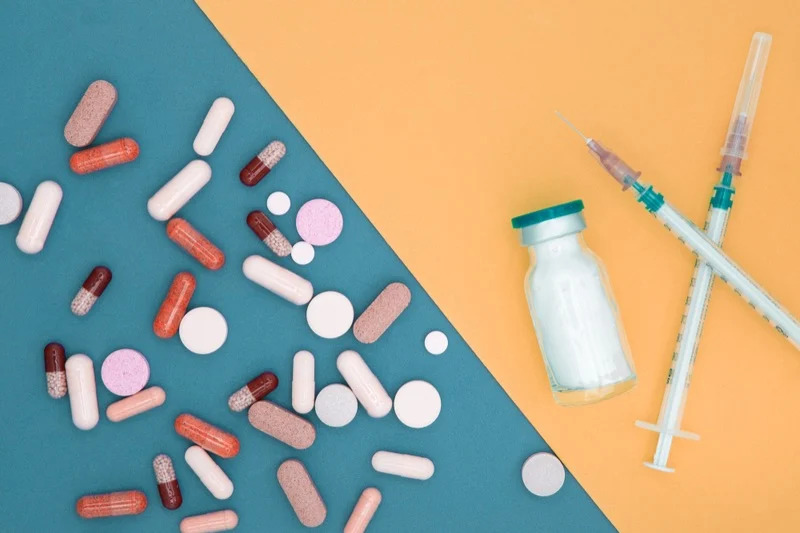In the United States, only ten antifungal drugs got the approval of the US Food and drug administration or FDA for the treatment of fungal infections. These medications belong to their principal classes: pyrimidines, polyenes, and azoles. Fungal infections range from common benign infections like jock itch to serious, life-threatening infections like cryptococcal meningitis. Antifungal agents are important for the treatment of fungal infections. They treat fungal infections that commonly affect your nails, hair, and nails.
How do antifungal agents work?
Antifungal medications work by killing a fungus. Or they may be stopping it from multiplying or growing. Several classes and different types of antifungal pills are present. Your doctor will select the best medicine that will be appropriate for you. Or they may prescribe you an effective over-the-counter treatment. These include:
-
- Echinocandins: The newer semi-synthetic antifungal medications that attack the fungus wall and damage it.
- Azoles: These are synthetic antifungal agents that keep fungi from growing. Examples include itraconazole, ketoconazole and fluconazole.
- Polyenes: These are the antifungal agents used to destroy the fungus cell. Examples are nystatin, amphotericin, and pimaricin.
How to take antifungal medications?
There are over-the-counter and prescription fungal infection medications. Speak to your doctor about what treatment to use. Antifungals are available in different forms, including antifungal tablets for skin, injections, topical creams, ointments, gels, and vaginal suppositories.
Topical antifungals
Topical antifungal agents treat fungal skin, nails, and scalp infections. They include ketoconazole tioconazole, clotrimazole, amorolfine, miconazole, and terbinafine. They are available in various brand names.
A topical antifungal is sometimes combined with other topical agents when two actions are required. For instance, an antifungal cream is often combined with a mild steroid cream, such as hydrocortisone, to treat certain rashes. The antifungal cream treats the infection, and the mild steroid creams reduce the inflammation caused by the infection.
Antifungal shampoo
A shampoo containing Ketoconazole treats fungi and certain skin conditions. It treats fungal or yeast infections in your skin. One can use the medicated shampoo just like a regular shampoo by massaging it into your skin. Follow your healthcare provider’s directions and how long you should let the product set before rinsing it off. The most common brand name of antifungal medicine is Nizoral.

Oral antifungal medicines
There are various types of oral antifungal medications. For example:
Miconazole comes as a gel preparation, and nystatin as a liquid. They are topically applied to the mouth. They are prescribed to treat thrush, also called mouth and throat candida infection. Itraconazole, voriconazole, terbinafine, and posaconazole are available as pills, which are absorbed into the body. They are used for the treatment wide range of fungal infections. The one prescribed by the doctor depends on the type of infection you suffer from. For example:
-
- Fluconazole is a common fungal infection medicine for treating vaginal thrush as an alternative to antifungal cream. It is also used to treat and prevent certain fungal infections within the body.
- Terbinafine is commonly prescribed to treat nail infections usually caused by tinea type of fungus.
Antifungal shots
Antifungal shots or injections are used if you have serious fungal infections. Itraconazole, Amphotericin, voriconazole, caspofungin, and micafungin are medicines that are injected. The one medicine is chosen on the type of fungus responsible for causing the infection.
How long do you need to take antifungal medications?
The treatment’s length varies depending on the fungal infections. Some fungal infections, such as ringworm, clear up in a few weeks. But eliminating some blood, nail, and lung infections can take months or years.
What are the potential side effects?
Side effects associated with the use of fungal infection medication may vary. Results usually depend on the type of medicine, dosage, and fungus. You may develop the following:
-
- Upset stomach, abdominal pain, and diarrhea
- Rash, itchy skin, or burning sensation.
Rarely, an antifungal medicine leads to serious problems such as:
-
- Severe allergic reactions such as anaphylaxis
- Liver damage
- Severe allergic reactions like blisters and peeling skin
Who shouldn’t take antifungal agents?
The safety of medicines depends on the type of antifungal agent you are using. Breastfeeding infants who develop thrush can be prescribed antifungal mouth drops. Their mothers also require treatment, typically with a topical antifungal. Your doctor can determine whether it is fine for you or your child to receive antifungal treatment.
What is called antifungal resistance?
Antifungal resistance is when a fungus no longer responds to antifungal treatment. This response makes the fungal infection difficult to treat. Certain fungi are naturally resistant to certain antifungal agents. Excessive use of fungal infection medication for a long time can also cause resistance. Skipping doses, discontinuing treatment too soon, or receiving a very low dose can give rise to antifungal resistance.
Antifungal medicines for children
Some fungal infection drugs can be used to treat children and babies, like miconazole oral gel can be used to treat oral thrush in babies. But different doses are usually required for children of different ages. Talk to your doctor for more information.
Conclusion
Antifungals treat fungal infections that affect the lungs, nails, and other organs. Some fungal infection resolves within a few weeks, while others require months of antifungal treatment. Taking these medications for a longer period or failing to complete the prescribed may contribute to antifungal resistance.
Also Read: What are the Top Allergens During Summer?
admin
Latest posts by admin (see all)
- What is Triluma Cream? Uses, Benefits, and How It Works for Skin - December 26, 2024
- What Causes Dark Spots? Understanding the Science of Hyperpigmentation and How Skin Lightening Products Help - December 26, 2024
- Tretinoin Gel vs. Cream: Which Formulation is Right for Your Skin? - December 20, 2024



